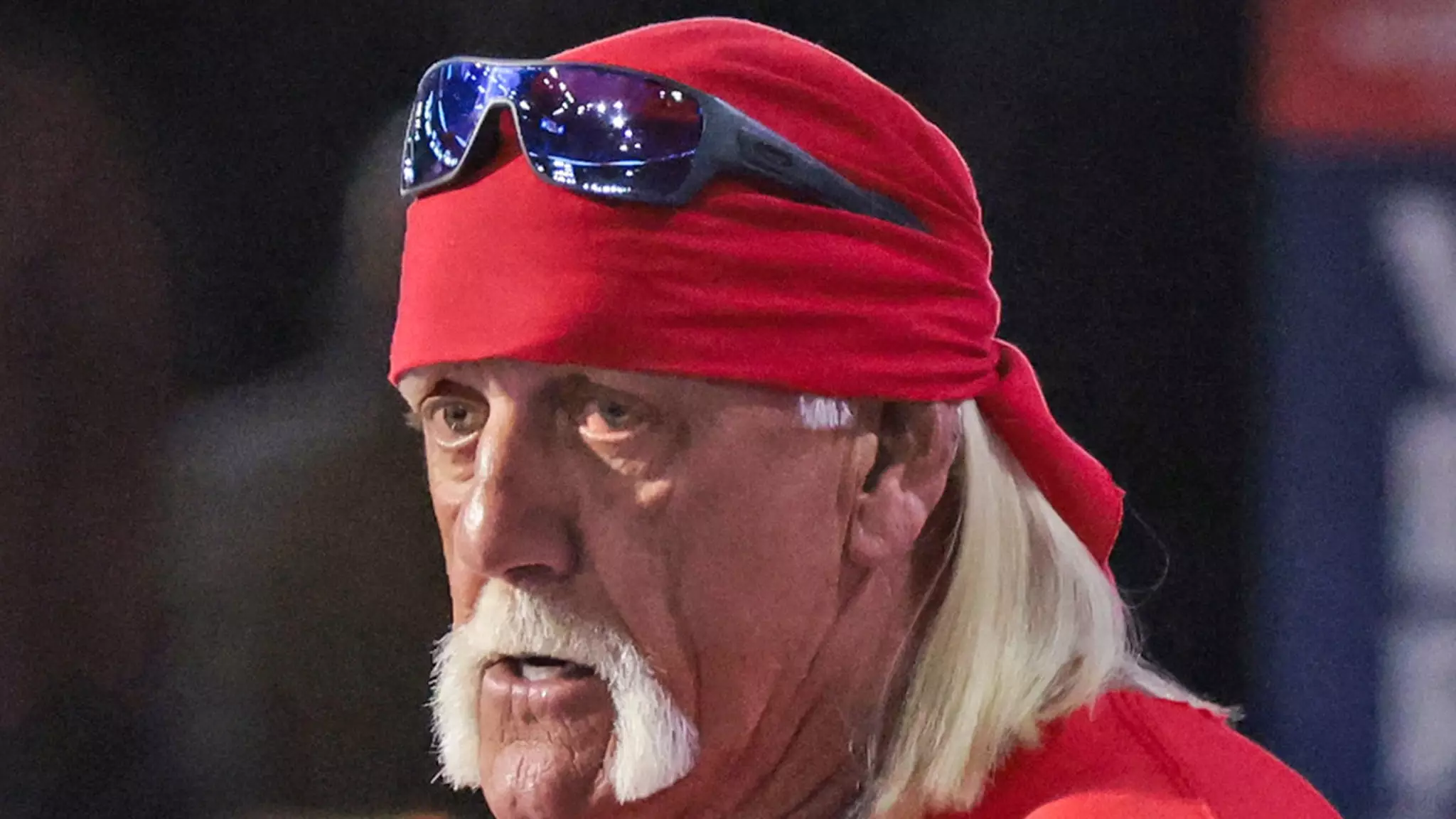The unexpected passing of Hulk Hogan at 71 has sent shockwaves through the worlds of sports entertainment, pop culture, and beyond. His death, reportedly caused by a cardiac arrest, marks the end of an era characterized by larger-than-life personas and groundbreaking entertainment. Witnesses outside Hogan’s Florida residence captured a harrowing scene—paramedics desperately attempting to save him, performing chest compressions as he was rushed to the hospital. Despite their efforts, Hogan was pronounced dead at 11:17 a.m., a fact that feels almost surreal given his larger-than-life persona. This tragic event prompts not only reflection on his legacy but also questions about the toll fame and physical tolls exact on wrestlers of his era.
What makes Hogan’s story particularly poignant is the proximity of recent health reassurances. Just weeks prior, his wife Sky, whom he married only in September 2023, dismissed rumors of serious illness, affirming his heart was “strong” as he recovered from surgeries. The stark contrast between that optimism and the suddenness of his death underscores the unpredictable nature of health issues, especially for those with a physically demanding career like professional wrestling. It also raises broader concerns about the physical toll, medical vulnerabilities, and the mental health struggles wrestlers often face behind the scenes.
Transforming Wrestling into a Global Phenomenon
Few personalities have had as profound an impact on professional wrestling as Hulk Hogan. Before Hogan’s rise to superstardom, wrestling was largely a niche sport with limited mainstream appeal. His charisma, theatrical flair, and relatable persona electrified audiences, pushing the sport into the realm of mainstream entertainment. The launch of “Hulkamania” in 1984, following his victory over the Iron Sheik, transformed the pop culture landscape. Hogan became a household name, recognized instantly by his signature bandana, handlebar mustache, and larger-than-life persona. He ignited a frenzy that turned wrestling into a family-friendly spectacle, captivating children and adults alike.
Hogan’s influence extended beyond the wrestling ring. He became a cultural icon, starring in movies like “Rocky III,” “No Holds Barred,” and launching successful television ventures like “Hogan Knows Best.” His crossover into Hollywood and mainstream media made him an archetype of the successful wrestler-turned-celebrity. Despite criticism and controversies, Hogan’s charisma remained magnetic, allowing him to reinvent himself, most notably as Hollywood Hulk Hogan during the rise of the NWO in the mid-90s, which propelled wrestling to even greater heights of popularity. His legendary matches—against icons like Andre the Giant and The Rock—are etched into the annals of sports entertainment history, cementing his status as not just a wrestler but a pop culture phenomenon.
Controversies, Redemption, and the Legacy of a Provocative Figure
Hulk Hogan’s extraordinary career was not without its scandals. In 2015, a shameful chapter unfolded when racist comments he made during a secretly recorded sexual encounter surfaced, leading to his temporary removal from the WWE Hall of Fame. The incident was a stark contrast to his previously celebrated persona and sparked widespread debate about redemption and accountability for public figures. Hogan’s subsequent lawsuit against Gawker, which published the controversial clip, resulted in a legal victory, further complicating his legacy.
Yet, despite the blemishes, Hogan’s induction into the WWE Hall of Fame in 2020—second time around—demonstrated that his contributions to the sport and entertainment had undeniable significance. His influence on the global expansion of WWE cannot be overstated. In fact, WWE’s statement upon his death highlighted Hogan’s pivotal role in elevating the company’s cultural reach. Hogan’s larger-than-life persona was a double-edged sword that brought immense fame and scrutiny; it reflects the complex reality that legendary figures often bear scars from the very fame they helped create.
His Enduring Cultural Legacy and What It Means for Future Generations
Hulk Hogan’s story is emblematic of the power of personality, showmanship, and resilience. His ability to resonate with audiences created a lasting legacy that transcended wrestling. His impact on pop culture remains evident—from the iconic image of his bandana and mustache to the influence he wielded during the rise of a sport that became a global phenomenon.
Nevertheless, the swift and tragic end of his life compels us to reflect on the realities faced by those in physically demanding professions. Hogan’s ongoing health struggles, including numerous surgeries, are a testament to the toll of a career built on physicality and spectacle. His recent ventures, like launching a wrestling league, show a desire to continue impacting the sport, although his life’s final chapter reminds us of the fragile nature of human mortality, even for the most seemingly invincible among us.
Hulk Hogan’s legacy is undeniably complex. It’s one of groundbreaking entertainment, of megastardom, and of human vulnerability. As fans and historians look back, there’s no denying his influence in shaping the modern narrative of wrestling—and, by extension, how sports entertainment became woven into the fabric of pop culture. His death leaves a void that will be felt for generations, serving as both a celebration of his achievements and a sober reminder of life’s impermanence.

Leave a Reply